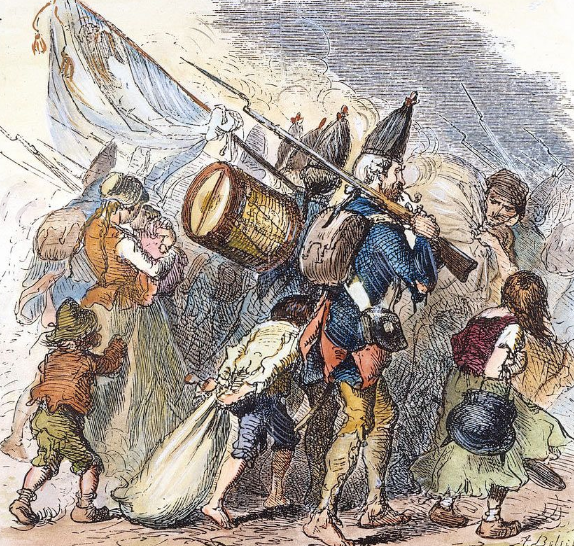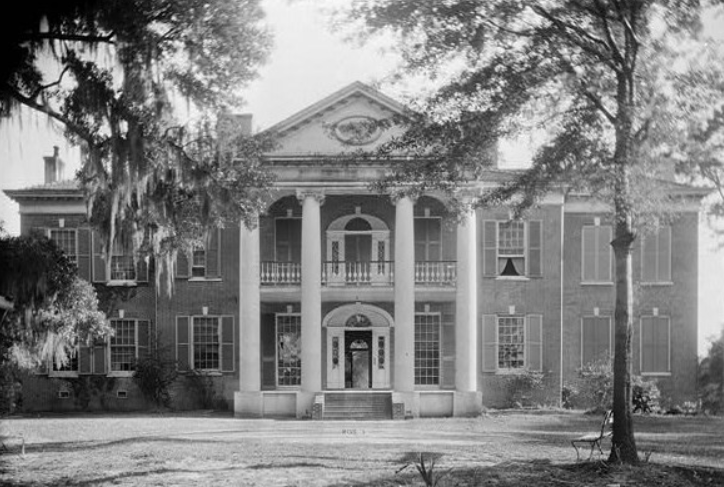The Fatigue of Such a March - Joseph Frye Retires
Earlier this week we looked at two events in Falmouth, now Portland, Maine.
At the risk of discussing a topic too long and making it dry, we will today look a little further at the aftermath of these happenings.
Additionally, we follow the short career of Joseph Frye, the man who Washington sent to help, and question if his early retirement was necessary.
Terror
The Burning of Falmouth was horrifying to the residents of Maine.
Rumor had it that the British planned on going up and down the seaboard burning every port town.
Although this would not actually happen, it was their original plan. Therefore, the colonists north of Boston were qualified in their fear.
This was a remote area, and the Patriots felt stranded.
Cries For Help
George Washington’s inbox became flooded with desperate letters from local Committees of Correspondence.
Falmouth, Gloucester and Yarmouth all begged for soldiers to protect them or at least gunpowder with which they could protect themselves.
Although Portsmouth, New Hampshire (the largest and most important city north of Boston) received a detachment of soldiers under John Sullivan, Washington offered Maine his sympathy but not supplies.
Still in the middle of a standoff with the British in Boston and large sections of the army in Canada and the South, he simply could not afford to send any help their way.
The only thing he did send was Joseph Frye.
Joseph Frye
Joseph Frye was in his mid-60’s at the outbreak of the Revolutionary War.
Frye had distinguished himself as a soldier in King George’s and the French and Indian Wars. For his service he was awarded a township which came to be known as Fryeburg.
Soon after Lexington and Concord, the Massachusetts Assembly named Joseph a Major General in the State Militia.
He went to Cumberland County to assess the situation.
All Calm on the Maine Coast
Frye found little to do in and around Falmouth.
Soon after the city’s burning it became clear that the Redcoat’s plan to destroy other coastal ports had been abandoned.
Noticing he had little to do in this extremely remote frontier (which was almost as close to Quebec and it was to Boston), Joseph returned to join the Siege of Boston.
Brigadier General
The previous August, Frye had sent a list of his accomplishments to John Adams and the Continental Congress in an effort to receive an Officer’s commission in the Main Army.
Since there were already several Massachusetts men in high ranking positions, the politics of Congress came into play and Joseph found himself in a close contest with John Armstrong, Sr.
Armstrong also had a large background in military affairs but after six months Frye won the day and was appointed Brigadier General in the Continental Army.
This was in January 1776.
Resignation
On March 18, 1776, Joseph Frye submitted his resignation to George Washington saying, “I find my Self in Such an Infirm State of health as renders me unable to bear the Fatigue of Such March as that Manœvre will require, I cannot think it laudable to continue in the army…”
The Commander-in-Chief was not happy about this, writing to several colleagues regarding his displeasure, noting that Frye, “had never done one tour of duty, or I believe had ever been out of his House.”
To be fair, in the two months that Joseph had been a Brigadier General his older brother, Colonel James Frye, had passed away. He himself was approaching 70 years old and not well.
Additionally, his resignation was given the day after the British evacuated Boston. Seeing the enemy leaving his hometown, and not prepared for a long war full of cross country movements that would have been difficult for an ailing, aging man, Frye believed he had served his country as best he could and would have only slowed the army down had he proceeded.
So what do you think, was Joseph Frye an embarrassment to his nation or had he earned a calm retirement after a lifetime of service to Massachusetts?
Read about other important resignations:
Thomas Mifflin Accepts the Resignation of General Washington
Artemas Ward - The First Commander-in-Chief
Lambert Cadwalader is Forced to Resign
The Siege of Boston is an extraordinarily interesting part of the Revolutionary War.
Encompassing the first year of the war, this standoff turned a bunch of rebels into the Continental Army.
‘The Siege of Boston’ is a great book which documents the turbulent time which birthed the United States and its first Army.
If you’d like a copy you can get one through the Amazon affiliate link below (you’ll support this site, but don’t worry, Amazon pays me while your price stays the same).
Want to get fun American Revolution articles straight to your inbox every morning?
Subscribe to my email list here.
You can also support this site on Patreon by clicking here.
Thanks for your support!






